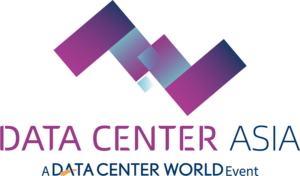Building a data center is a complex process with several stages, and in today’s fast-paced digital world, speed is essential. As the demand for data centers continues to grow, understanding the key factors that influence construction timelines is critical. Read this article or join Data Center Asia 2025 during 15-17 Jul 2025 in Hong Kong to gain valuable insights into optimizing the data center development process and staying ahead of industry trends.

Typical Timeline for Building a Data Center
The typical timeline for building a data center can be broken down into several phases.
- Pre-Construction Phase (Design & Permitting)
This is the initial planning stage, where the site is selected, the design is created, and necessary permits are obtained. This phase can take anywhere from a few months to over a year, depending on the complexity of the design and local regulations.
- Construction Phase
The physical construction of the building and installation of infrastructure (e.g., electrical systems, cooling systems, and network connectivity) is the next step. This phase can take anywhere from 9 months to 2 years or more. The duration depends on the size and specifications of the facility.
- Commissioning & Testing
After the physical building is ready, it’s time for the data center to be tested. This includes checking all systems—cooling, power, servers, and networking—to ensure everything works as intended. This phase can take several weeks to a couple of months, depending on the complexity of the infrastructure.
The increasing demand for digital services, highlighted by a 26% growth in APAC public cloud spending from 2021 to 2026, emphasizes the need for swift construction to keep up with market needs. Data Center Asia serves as a pivotal event where stakeholders can discuss these timelines and share best practices to enhance the efficiency of data center construction.
Factors Influencing Construction Time
The timeline for building a data center is influenced by several factors, making it more flexible but also subject to delays. Let’s look at the key elements that affect the time it takes to build a data center.
- Size and Complexity
Larger, high-density data centers with advanced cooling, security, and infrastructure systems take longer to build due to the need for specialized design and integration. - Design and Customization
Customized designs, particularly for industry-specific needs (e.g., healthcare, finance), require extra planning, approval, and compliance checks, extending the timeline. - Modular Data Centers and Scalability
Modular designs, which use prefabricated units, speed up construction by allowing quicker assembly and future scalability, especially for smaller data centers. - Availability of Resources
Delays in sourcing materials, equipment, or skilled labor can slow down the construction. Specialized components or labor shortages can create bottlenecks.
Skilled Labor: Singapore and Japan have a skilled workforce but may face specialized skill shortages. Malaysia and Indonesia are growing their labor pools but still rely on importing talent.
Materials and Equipment: Singapore and Japan have strong supply chains, though global shortages can cause delays. Malaysia is working to localize semiconductor production, while Indonesia faces challenges in sourcing specialized components.
Land and Infrastructure: Japan and Hong Kong struggle with limited land availability, especially in urban areas. Malaysia and Indonesia offer more land for development, with Malaysia providing tax incentives and infrastructure support.
- Regulations and Compliance
Southeast Asian countries are increasingly shaping data center construction with regulations focused on sustainability, security, and local data storage.
Malaysia and Indonesia emphasize energy efficiency and zoning requirements, while Singapore enforces strict sustainability standards and cybersecurity measures. Japan and South Korea prioritize data sovereignty and security, with Japan requiring more local data storage and South Korea enforcing robust information security. China and Indonesia also mandate local storage of personal data.
These regulations can promote environmentally responsible, secure, and locally compliant data center development across the region but can also impact the timeline of data center constructions. Therefore, builders should proactively understand and align with local regulations early to prevent hold-up during the approval process and ensure faster project completion.
Join Us at Data Center Asia 2025
If you’re interested in learning more about the future of data center construction and digital infrastructure, don’t miss Data Center Asia 2025 in Hong Kong! This premier data center events APAC is the ideal platform to explore the latest advancements in the data center industry. Whether you’re a professional in the field or simply curious about emerging technologies, the event will offer invaluable insights into building, scaling, and optimizing data centers. Register now for Data Center Asia 2025!



